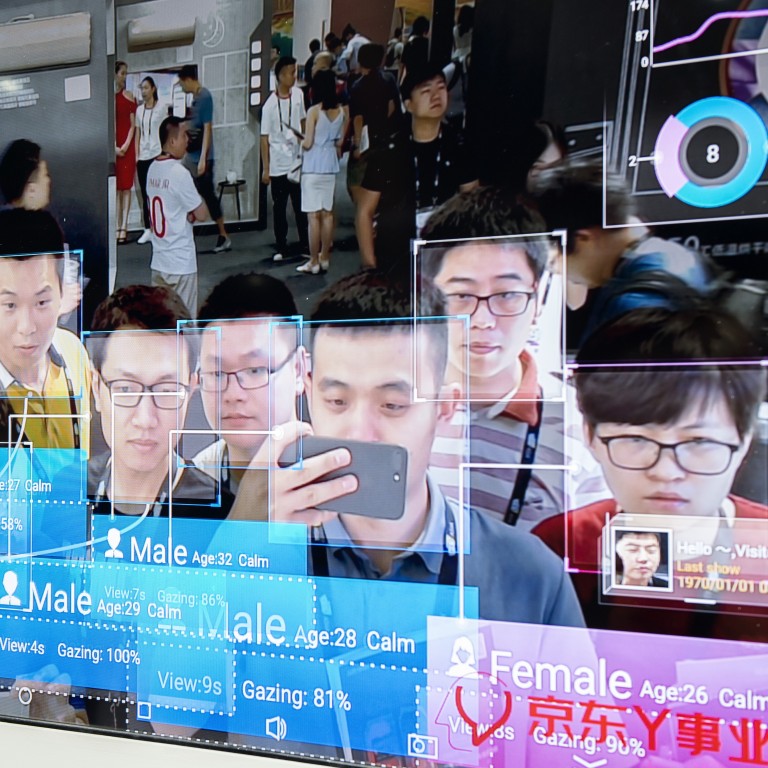
China launches facial recognition for mobile phone users
- New regulation increases concerns that there are not sufficient safeguards in place to protect people’s personal information
- China does not have specific laws governing the use of facial recognition technologies
China on Sunday introduced a new rule that requires people to have their faces scanned when registering mobile phone services, as experts and even state media raised concerns there were not sufficient measures in place to safeguard people’s privacy.
Before the introduction of the new requirement, which was announced in September by the Ministry of Industry and Information Technology, people registering for mobile phone services had to provide only a copy of their identity card.
The ministry said the new measure would help to stem the resale of sim cards and protect people from unknowingly registering for phone services in the event of their identities being stolen.

Many online services and social media in China are tied to mobile phone numbers to ensure users are traceable.
Some people said online that telecom operators had begun insisting on face scans before the official launch.
University says new facial recognition system will improve attendance
Some said they hoped the new measures would help reduce telecom fraud and phone scams, while others said it was just another example of the government increasing its surveillance of its citizens.

Some experts said they were concerned that the technology was being implemented without the proper safeguards in place.
“The protection [of personal data] in the criminal law is not enough,” she said at a symposium on facial recognition and privacy protection in Beijing last week.
“For most of the time, we don’t know our data is being collected and the storage and use of data doesn’t follow legal requirements.
“Obtaining people’s personal data needs their consent, according to China’s laws and regulations, but in reality, facial recognition technologies are widely used while the public rarely knows about them.”
A report by state broadcaster CCTV on Saturday said many apps in China collected people’s facial data without a user agreement.
In one case, more than 5,000 pieces of facial data were sold online for only 10 yuan (US$1.40) each, prompting Communist Party mouthpiece People’s Daily to issue a commentary saying people should have the right to say no when asked for face scans.
“The misuse of legally collected data may be a bigger threat, but we don’t have regulations on the misuse of data in the criminal law,” Lao said.
But even if there were legislation in place to protect people’s facial data, some legal experts said it still would not prevent the risk of personal information finding its way into the government’s hands.
“Once this technology is used on a large scale, we have nowhere to hide,” said Beijing-based lawyer Wang Xinrui. “The risk of facial recognition technologies is high and far-reaching.”
For more insights into China tech, sign up for our tech newsletters, subscribe to our award-winning Inside China Tech podcast, and download the comprehensive 2019 China Internet Report. Also roam China Tech City, an award-winning interactive digital map at our sister site Abacus.

